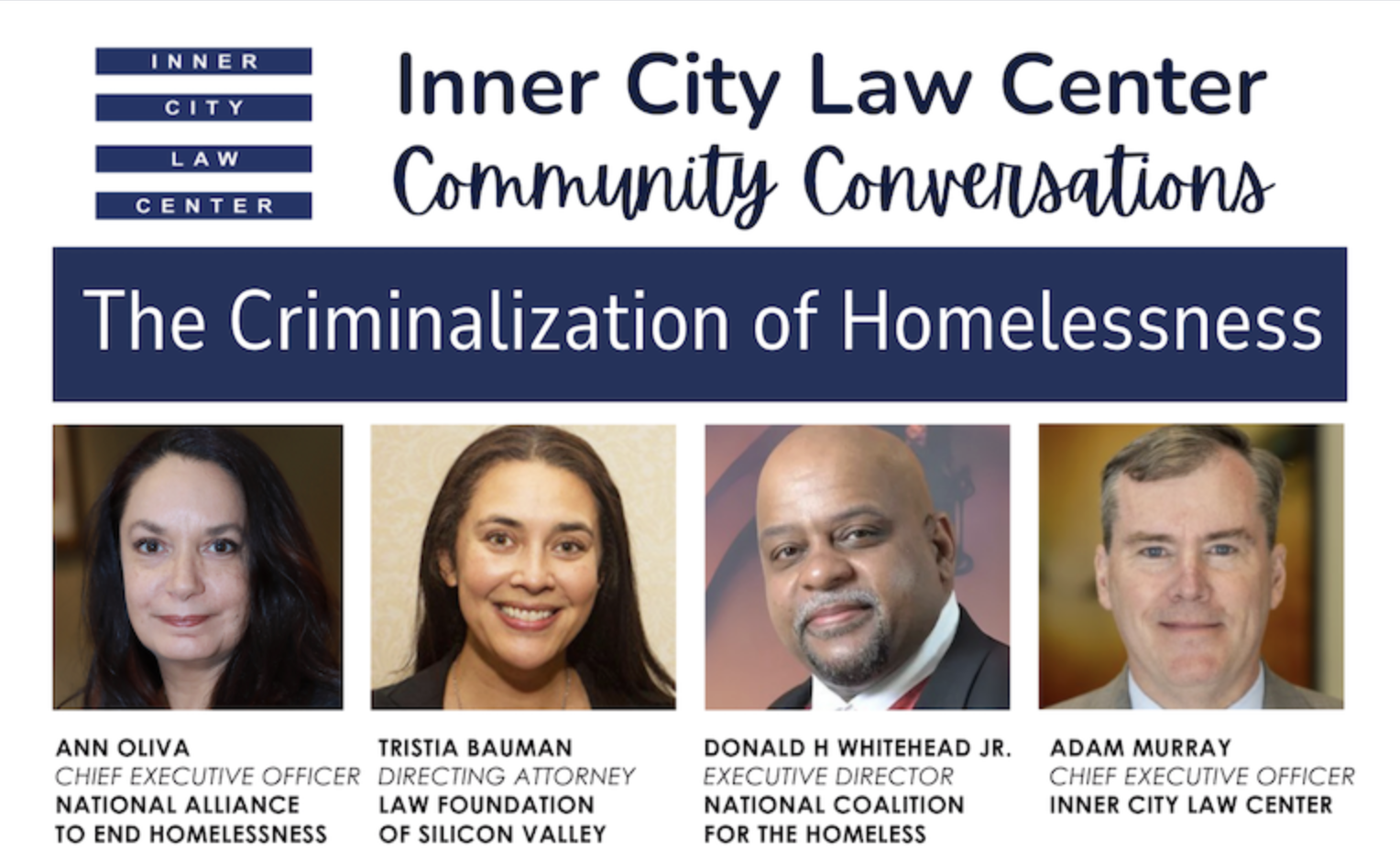On September 30, the Inner City Law Center hosted a community conversation on the criminalization of homelessness. The panel brought together Adam Murray of ICLC, Tristia Bauman of the Law Foundation of Silicon Valley, Ann Oliva of the National Alliance to End Homelessness, and Donald Whitehead Jr. of the National Coalition for the Homeless. Their discussion painted a stark picture of how cities across the country are turning to enforcement and punishment rather than housing and services, a trend that has accelerated since the Supreme Court’s 2024 Grants Pass v. Johnson decision.
The ruling allowed jurisdictions to fine or arrest people for sleeping outdoors even when no shelter is available. As Oliva explained, “It is not considered cruel and unusual punishment to apply civil or criminal penalties to people who are living outside, even if there is no shelter available.” Bauman added that more than 320 new anti-homeless ordinances have been enacted nationwide since the decision, from camping bans to vehicle dwelling restrictions.
Panelists emphasized the devastating consequences of these laws. Vehicle dwelling bans can lead to the loss of a family’s only shelter and all of their belongings. People fined for survival activities quickly rack up debts they cannot pay, which often spiral into arrest warrants and jail time. Whitehead described the cycle bluntly: “Criminalization does not solve homelessness. People are still homeless after they leave a jail cell, after they leave an involuntary placement. Housing is what we need.”
The speakers also warned that these policies dehumanize people and invite violence, noting that hate crimes against unhoused people are sharply rising, with 151 reported incidents in just one year, the highest ever recorded in their research. “When people are criminalized, when their camps are raided, when they are made to be less than, we do see people committing crimes against them,” he said.
Although the panel looked at national trends, their warnings resonate deeply on the Westside of Los Angeles, where Councilmember Traci Park has embraced criminalization as her central approach. Park has promoted encampment sweeps across Venice and Mar Vista, supported restrictions on vehicle dwelling, and described encampments as “blight” in her newsletters.
The panelists pointed to solutions that are both more humane and more effective. They called for investments in deeply affordable housing, permanent supportive housing, and adaptive reuse of vacant buildings such as hotels, malls, and schools. They also stressed interim measures that can reduce harm while waiting for longer-term housing to come online, such as safe parking programs, rental assistance, and voluntary access to health and recovery services.

